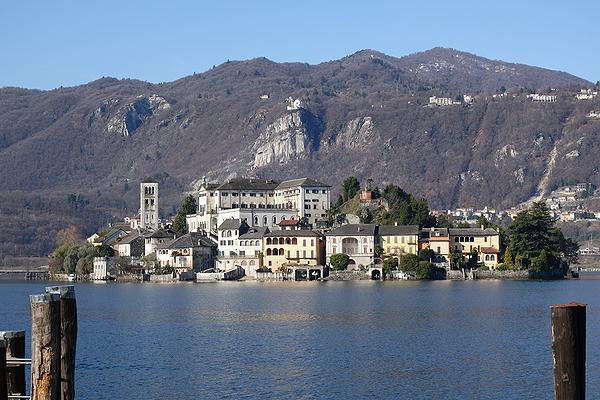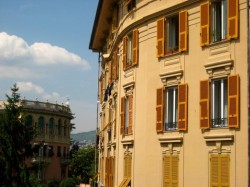ITALY CHRONICLES
Latest Posts

New! Italy Photo Contests – Show Off Your Photos of Italy
If you, like me, you think Italy is extremely photogenic, you might be interested to hear that Italy Chronicles is to run photo contests. The
Italian Politics – Still a Mess
Here’s a roundup stroke overview of what’s going on in the decidedly odd world of Italian politics. Broadly, there are three political factions in Italy,
Wild Boar Hunting in Italy
Ever thought about wild boar hunting in Italy? Maybe not but perhaps you might like to. Italy has a bit of a problem with wild
Berlusconi Heart
On Thursday in Italy headlines were dominated by the news that Silvio Berlusconi, a former and controversial prime minister, required an urgent heart operation and had
Money People – The World’s Biggest Problem
What’s that old saying? Ah yes, “money is the root of all evil”. From what is happening in Italy and elsewhere around the world, there
Italian Politics – Still a Mess
Here’s a roundup stroke overview of what’s going on in
Wild Boar Hunting in Italy
Ever thought about wild boar hunting in Italy? Maybe not
Berlusconi Heart
On Thursday in Italy headlines were dominated by the news
Money People – The World’s Biggest Problem
What’s that old saying? Ah yes, “money is the root
Italy
Roman Holiday: Audrey Hepburn’s Iconic Italian Adventure
“Roman Holiday: Audrey Hepburn’s Iconic Italian Adventure” takes us on a journey through one of Audrey Hepburn’s most beloved films and showcases the enduring impact

How to Solve Italy’s Problems – A Manifesto for Italy – Section Two
Here is section two of this Manifesto for Italy discussion document on how to sort out Italy and transform it into a nation which works
Italy – The Vatican and the Mafia
When mention is made of Italy mixed in with thoughts of pasta and wine will be the Vatican and, the mafia.

Anonymous Hacks Web Site of Fabrizio Corona
I was a little slow on the uptake, despite being tweeted at by people who are probably part of the Anonymous hacking network. What the
Sorrento’s Historic Old Town: A Mediterranean Gem
Sorrento’s Historic Old Town, nestled along the picturesque Mediterranean coast, is a true gem that offers a rich blend of history, culture, and natural beauty.

Italian Wine – Best Selling Wine Books
Here’s a list of best selling wine books to help you learn more about Italian wines, plus a couple of wine book extras. More and
Money People – The World’s Biggest Problem
What’s that old saying? Ah yes, “money is the root

Italy – The Situation So Far
Where is Italy going at the moment? The country which
Properties

The Admirable Admiral’s Villa in Taormina
If you know your history pretty well, you may be aware that one of England’s most celebrated Admirals possessed a rather charming villa in the scenic Sicilian town of Taormina.
House For Sale near Milan
Gaetano Salvo, friend and Blog from Italy researcher wants to sell his house. For those who might be interested, or may know of someone or

How to Find Property for Rent in Italy
Maybe you are coming to Italy to work or study here for a while, in which case, you’ll need somewhere to live. If that’s the

The Admirable Admiral’s Villa in Taormina
If you know your history pretty well, you may be aware that one of England’s most celebrated Admirals possessed a rather charming villa in the scenic Sicilian town of Taormina.

How to Find Property for Rent in Italy
Maybe you are coming to Italy to work or study here for a while, in which case, you’ll need somewhere to live. If that’s the
Places to stay in Italy
Casa Villatalla B&B, Liguria
By far the most important members of the Casa Villatalla household are Nellie (an elderly but loveable chocolate Labrador), Bonnie, a fluffy and rather scatty American Spaniel, and Pickle, aneccentric cat who walks like John Wayne.
Chaplin Bed and Breakfast Rome
Perfectly located in a safe and quiet but extremely central Rome neighborhood, the Chaplin Bed and Breakfast Rome is the ideal base for your Roman holiday.
Villa Miller Bed and Breakfast, Puglia, Italy
Located well off the main road in the depths of the Puglia countryside, Villa Miller the only sounds which disturb guests are those of the crickets and the ringing of the bells worn by the areas cow and sheep population.
Villa Miller Bed and Breakfast, Puglia, Italy
Located well off the main road in the depths of the Puglia countryside, Villa Miller the only sounds which disturb guests are those of the crickets and the ringing of the bells worn by the areas cow and sheep population.
Casa Villatalla B&B, Liguria
By far the most important members of the Casa Villatalla household are Nellie (an elderly but loveable chocolate Labrador), Bonnie, a fluffy and rather scatty American Spaniel, and Pickle, aneccentric cat who walks like John Wayne.

